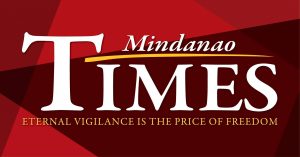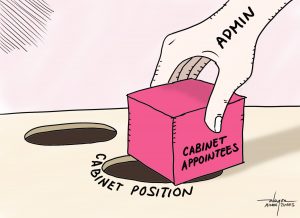 ALEGRE, Edilberto. 2020. Biyaheng Pinoy: A Mindanao Travelogue. Quezon City: Ateneo de Manila University Press. 438 pages.
ALEGRE, Edilberto. 2020. Biyaheng Pinoy: A Mindanao Travelogue. Quezon City: Ateneo de Manila University Press. 438 pages.
(This paper was first read in “Journeying South: Conversations on Biyaheng Pinoy: A Mindanao Travelogue” event of the Ateneo de Manila University Press.)
At first glance, one can surmise that Edilberto Alegre’s remarkable book Biyaheng Pinoy: A Mindanao Travelogue (2020) converses with Kerima Polotan Tuvera’s Adventures in a Forgotten Country (1977) – another equally compelling work that recounts the writer’s personal and political “adventures” in the Philippines and beyond. In the title essay of Tuvera’s book, she narrates her sojourn in Cagayan de Oro and Dipolog, which she describes as places which the “virus of revolution” hadn’t reached yet. While Polotan Tuvera was born in Jolo, Sulu, she had spent most of her life in Pangasinan, Tarlac, Laguna, and Metro Manila, which may probably be the reason why she imagines Mindanaw and Sulu from the perspective of “forgotten countries” beyond the National Capital Region and its adjacent provinces.
In Edilberto Alegre’s work, Mindanaw and Sulu are imagined not as “forgotten countries” but as “missing parts” of how we contour and shape the image of the nation. Alegre uses the verb “travel” and not “adventure” to describe his undertakings.
While the latter is about engaging in exciting experiences and activities, the former refers to movement from one place to another, often to a place that is far away. Movement here connotes an act of process, which is active rather than passive; it is about change in terms of space, time and character. Travelling makes you explore different realms of spaces, earn a modicum of insights and realize the lopsidedness and inequality embedded in the complex interplay of power.
In the words of French anthropologist Claude Lévi-Strauss in his remarkable book Tristes Tropiques (1955), “the first thing we see as we travel round the world is our own filth, thrown into the face of mankind.” It is in this conjuncture that I situate Edilberto Alegre’s pagbiyahe or travelling.
Alegre felicitously asserts that travelling is “the occasion for linguistic sojourns in the urgency for wholeness, for meanings, for totality, for insignificance” (91). Travelling is a process of loading discourses and meanings through languages and cultures and writing about them is a form of unloading. The two processes of travelling and writing then create a voyage of enlightenment that leads to our understanding of our “national cultures.”
Culture is pluralized here as “cultures” to avoid essentialism and to highlight the diversity of lifeworlds among different ethnolinguistic groups in the Philippines. Alegre refers to cultures that do not always adhere to the calendrical and homogenous time of progress and civilization.
The cultures that aren’t emergent but are always there existing and changing from the pre colonial up to the contemporary period. The cultures that are etched in the different cultural data – language, food, markets, monuments and even performances – that one can culled from Mindanaw and Sulu.
The crux of the book Biyaheng Pinoy: A Mindanao Travelogue lies in the fact that it inaugurates a valuable lesson and way of cultural theorizing in Philippine studies: always rely on concrete data. What constitutes concrete data in the field are the words and syllables uttered, food consumed, scene or places observed, and a performance witnessed.
Alegre opines that a researcher can sometimes go wrong with a theory, especially the ones borrowed from the West, but never in concrete data that can be gathered from the field. Think, for example, of “food” as cultural data. Embedded in it are various domains and stages such as the production of ingredients to be cooked, the preparation for the cooking, and the eating itself. The production of ingredients may involve farming and performance while going and observing in the market may be considered as part of immersing oneself in cultural data, and finally the eating part itself may also be viewed as a cultural event.
In the essay “Knowing Kagi,” Alegre exemplifies the differences and similarities in preparing, cooking and eating food across various ethnolinguistic groups in the Philippines. While some foods are technically analogous with each other, they still differ in taste and preparation.
The Iranun-Maguindanaon has a cuisine called tininda saig, or boiled vegetables in water with mild distinct flavor. For the Tagalog, they call it bulanlang and for the Cebuano, it is law-oy but a bit sweeter in taste. Alegre also foregrounds the presence of syncretization in the manner we adjust a foreign cuisine’s taste according to one’s palate. In this aspect, adding patis (fish sauce), toyo, sugar, asin, and even gata in a cuisine imported from foreigners demonstrates indigenization – the process of decolonizing the Other.
In all this, it is instructive to distinguish Edilberto Alegre’s Biyaheng Pinoy: A Mindanao Travelogue as a book that departs from previously published travelogues in Philippine letters by bridging the discursive and the popular. Alegre frames and re-frames, structures and re-structures, constitutes and reconstitutes different ways of and pathways to seeing and reading data that reflect Philippine cultures. The book offers theoretical discussions that are easy to read, a feat that many from the academe fail to do. It also tries to accommodate the gamut of Philippine studies, scholars, teachers, students, readers and even ethnolinguistic groups such as the Kirinteken Manobo of Bentangan. In the book, the Kirinteken Manobo of North Cotabato and the Sama Dilaut of Sulu are imagined embodying their own cultures and situated in a critical juncture beyond perfunctory assimilation and a mere fraction of the celebrated “Nation.”
Ultimately, Edilberto Alegre’s Biyaheng Pinoy: A Mindanao Travelogue, edited by acclaimed poet and anthologist Ricardo de Ungria and with foreword by Mindanaw and Sulu studies scholar Bro. Karl M. Gaspar, is a valentine to the Island-Region that continues to yearn for socio-economic justice, peace and equality that have long been denied, even by the first Mindanawon president of the Philippines.
(MindaViews is the opinion section of MindaNews. Jay Jomar F. Quintos is an associate professor of Philippine studies and literature at the University of the Philippines.)

